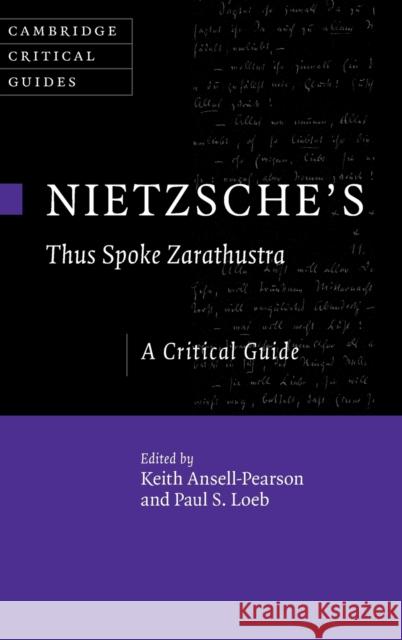Nietzsche's 'Thus Spoke Zarathustra': A Critical Guide » książka
topmenu
Nietzsche's 'Thus Spoke Zarathustra': A Critical Guide
ISBN-13: 9781108490849 / Angielski / Twarda / 2022
Nietzsche's 'Thus Spoke Zarathustra': A Critical Guide
ISBN-13: 9781108490849 / Angielski / Twarda / 2022
cena 367,48
(netto: 349,98 VAT: 5%)
Najniższa cena z 30 dni: 363,79
(netto: 349,98 VAT: 5%)
Najniższa cena z 30 dni: 363,79
Termin realizacji zamówienia:
ok. 16-18 dni roboczych.
ok. 16-18 dni roboczych.
Darmowa dostawa!
Leading scholars discuss the ideas in Thus Spoke Zarathustra, showing why it is one of Nietzsche's most important philosophical works.











